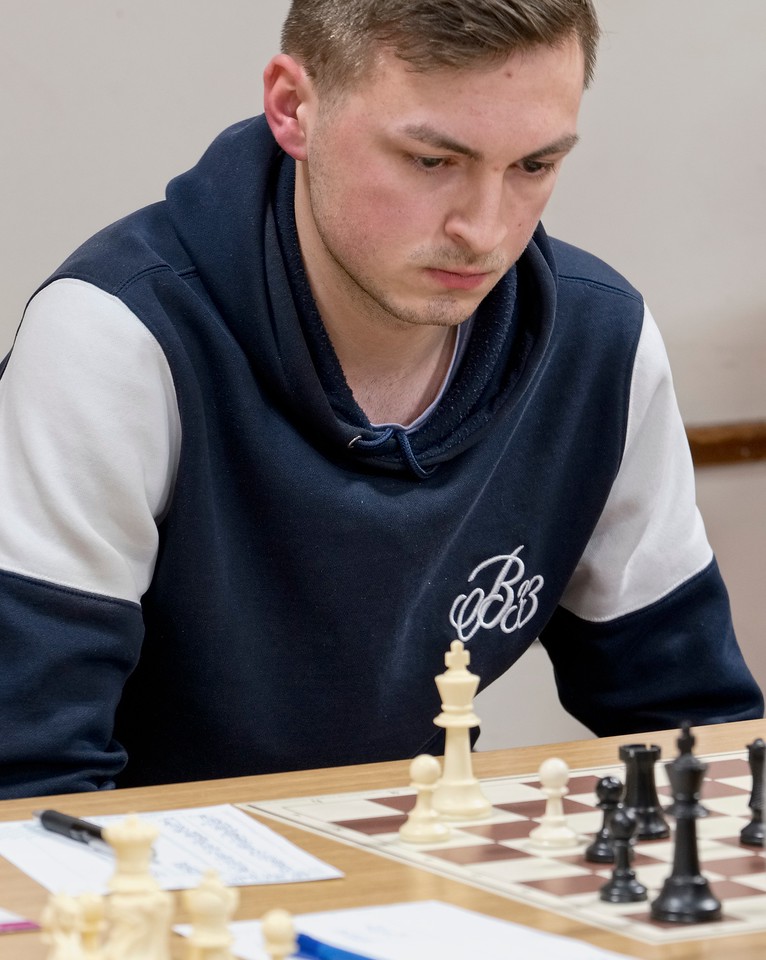The FIDE World Team Championship which began on Tuesday is a 10-team round-robin tournament that takes place every two years. This time it is being held in Astana, the capital of Kazakhstan. The teams participating represent – as I understand it – ‘the ten countries whose chess federations dominate their continent’. However, as this information was gleaned from Wikipedia, I am in no position to guarantee its accuracy, especially as there does not appear to be a representative from South America. It is possible that a team was invited and declined to take part as top players may already be contracted to play elsewhere. This was the case with Poland, bronze medallists in 2017, who chose not to play as the date was confirmed too late for some of their players. Other teams who agreed to take part are not at full strength for the same reason e.g. India are without Anand and the US team is at best a B team with no Caruana, Nakamura, So or Shankland. The English representation is a strong one: Adams, McShane, Howell, Jones and Speelman with Malcolm Pein as captain. Matches take place on four boards, with two match points for a win and one for a draw.
After five rounds England are handily placed in third behind Russia and India, both of whom they have played and drawn 2-2 as they did with the USA who are in fifth place. Russia, who are now the favourites to win, still have to play India (in the final round) and the USA while England’s toughest match is against China in Round 8. China, who won the tournament in 2015 and 2017, were probable pre-tournament favourites, especially with a team featuring Ding Liren, Yu Yangyi and Wei Yi, but defeats to Russia and the USA leave them in sixth place. English scores at the half-way stage are Adams 1½/5, McShane 3½/5, Howell 3/5 and Jones 3/5. Today is a rest day and the tournament resumes tomorrow (Monday) and finishes on Thursday.
The American victory over China was a major surprise considering the relative strength of the two teams and with three of the four boards drawn, the match-winning result was the victory for Aleksandr Lenderman on board 4 over Ni Hua. The key move was 29….f6! but even after White was forced to give up a knight, the game still had to be won. Lenderman, however, kept his cool to secure a famous win for the USA and probably scupper China’s chances of a hat-trick of World Team gold medals.
White: Ni Hua (2683) Black: Aleksandr Lenderman (2637)
World Team Championship 2019
Broadstairs 3½ Folkestone ½
| 1 | Richard Clement (129) | 1-0 | David Erwee (100) |
| 2 | Chris Stampe (124) | 1-0 | Andrew Haycock (96) |
| 3 | Gary Hilleard (119) | ½-½ | Mike White (62) |
| 4 | John Couzens (117) | 1-0 | default |
Andy Flood writes:
A very strong Broadstairs team retained the Hargreaves Shield in their final Hargreaves match of the season and in so doing maintained a 100% win record beating both Bridge and Folkestone home and away. In truth, Folkestone were always going to be up against it. Defaulting on board 4, they were 1 – 0 down from the beginning and outgraded substantially on all boards. They did, however, benefit from being white on two of the three boards and all those playing white (including Michael White) got off to a strong start, none more so than Chris Stampe who was dominant from move 1 chasing his opponent’s knight around the board, and posing numerous threats before his opponent resigned, thereby maintaining his personal 100% win record. At 2 – 0 down, Folkestone still had an outside chance of getting a draw as they were on top on board 3 and had started well on board 1, gaining early material advantage. However, Richard won back a piece and with solid play recovered well from a less than ideal position to comfortably win and secure the points and a match win for Broadstairs. The final game to finish was on board 3 where from being two pawns down, Gary rallied in the endgame to win the pawns back before agreeing a draw with his opponent who had played a very good game throughout.
Editor’s note: The Hargreaves Shield is the third trophy won by Broadstairs this season. The team was a strong one as Andy said but matches still have to be won. Well done to everyone who has played for the team this season – the four in this match together with Andy Flood and Michael Doyle.
The Aeroflot Open which has just finished in Moscow is traditionally a strong tournament and this year was no exception. Six players had ratings over 2700 and there were more than thirty above 2600 in the 100+ field. Incredibly, in such a strong tournament, first place went to a player seeded 62, the Estonian GM Kaido Kulaots. Today is his 43rd birthday so he and Vladimir Kramnik, who recently announced his retirement from competitive chess at the same age, must feel like ships passing in the night. Kaido’s victory has not gone unnoticed and one of the first to congratulate him was Magnus Carlsen:
“Congrats to Kaido Kulaots for an absolutely amazing underdog victory at the Aeroflot Open! 19 years ago, he shared a flat with my father and me at the Gausdal tournament, and inspired an unrated 9 year old by predicting that he would one day be rated 2650.”
The tournament got off to an extraordinary start when a bomb scare early in round one forced all the players and officials to vacate the venue and wait for hours outside in the freezing conditions while the organizers decided what to do. Eventually, once the players were allowed back in it was decided to begin round one again the next day with an adjusted time control. This proved to be a stroke of luck for Kaido for he admitted afterwards that ‘my position was not up to much at that point’ . The rearranged first game became the first of his five victories and he finished it in style. In the position below it is Black to play.
White: Parham Maghsoodloo (2666) Black: Kaido Kulaots (2542)
Aeroflot Open 2019
36… Ra3+!
So, of the six players with ELO ratings above 2700, who was the top seed? Well, it’s our old – or not so old – friend, Wei Yi who, let’s not forget, is still only 19 although he seems to have been around forever. While it was no doubt disappointing not to win, he did manage to finish fifth with his only defeat to the eventual winner in round 7. He also played a couple of trademark sparkling games such as this one played in the final round.
White: Wei Yi (2733) Black: Daniil Yuffa (2578)
Aeroflot Open 2019
This Game of the Week features the player making all the running in the Broadstairs club championship and the only man to take so much as half a point off him. Clearly, mention in the Club News article of Richard’s 100% record acted as a minor jinx (although it did not prevent him from bouncing back to form in his next match). For Andy, it was another good result in what has been a fine season for him. The comments are Richard’s.
White: Richard Clement (145) Black: Andy Flood (113)
Goodall Cup 2019
In 1990 the British Chess Championships were held in Eastbourne in the middle of a heatwave. Stewart Reuben began an early question and answer session with the following greeting: “Welcome to the hottest British Championships on record!” But it was August and heatwaves are more common then than in February when the Kidlington Congress is traditionally held. The 42nd Congress took place two weeks ago and a glance at the photo of the venue above shows that players faced very different conditions and challenges even before they sat down to play chess.
Kidlington has long been a regular feature of the chess tournament calendar on the first full weekend in February. The first Kidlington Chess Tournament was held in 1978. It had two sections and offered a guaranteed minimum prize fund of £130. In its second year Exeter Hall became the venue where it has remained ever since. In 1981 an intermediate section was added and in 2012 a fourth section for Under-120 players. The Open section serves as the second leg of the Oxfordshire Individual Championship with the County Champion being the eligible player with the highest combined score in the Open sections of the two weekend tournaments held in Oxfordshire during the season, namely the relatively new autumn congress at Witney (2018 was its sixth year) and the Kidlington tournament.
The congress is very popular: for the past two years it has played to a full capacity (192) and the maximum was reached this year with ten days to go. A waiting list was established which proved to be a good idea as the weather took its toll and there were some withdrawals but fortunately fewer than expected according to Gerard O’Reilly, lead organizer since 2012, and the total of 180 on such a weekend is still impressive. The venue is unusual: all the chess is played in one room but there is a pit in the middle housing the U180 and U145 sections while the U120 and the Open take place on the surrounding raised section. Chess Direct provided the bookstall so it was good to have a chat with Andrew Butterworth who used to be a regular fixture at the Thanet Congress. An innovation that caught the eye of this writer was the team prize. Players were invited to form teams of four from any of the sections and their final scores were combined with the prize going to the highest-scoring team.
The Open section was small (21) but competitive and it is always satisfying when the two players in contention for first place are drawn against each other in the final round and so it proved this time. Marcus Harvey (left) had already come first equal at the ‘sister’ tournament at Witney so he had an extra incentive to win at Kidlington. Unfortunately, in his way stood (or sat) the formidable weekend specialist, Mark Hebden. However, youth prevailed, and Marcus became the Oxfordshire Individual Champion for the first time.
White: FM Marcus Harvey (231) Black: GM Mark Hebden (238)
Kidlington Chess Congress 2019


